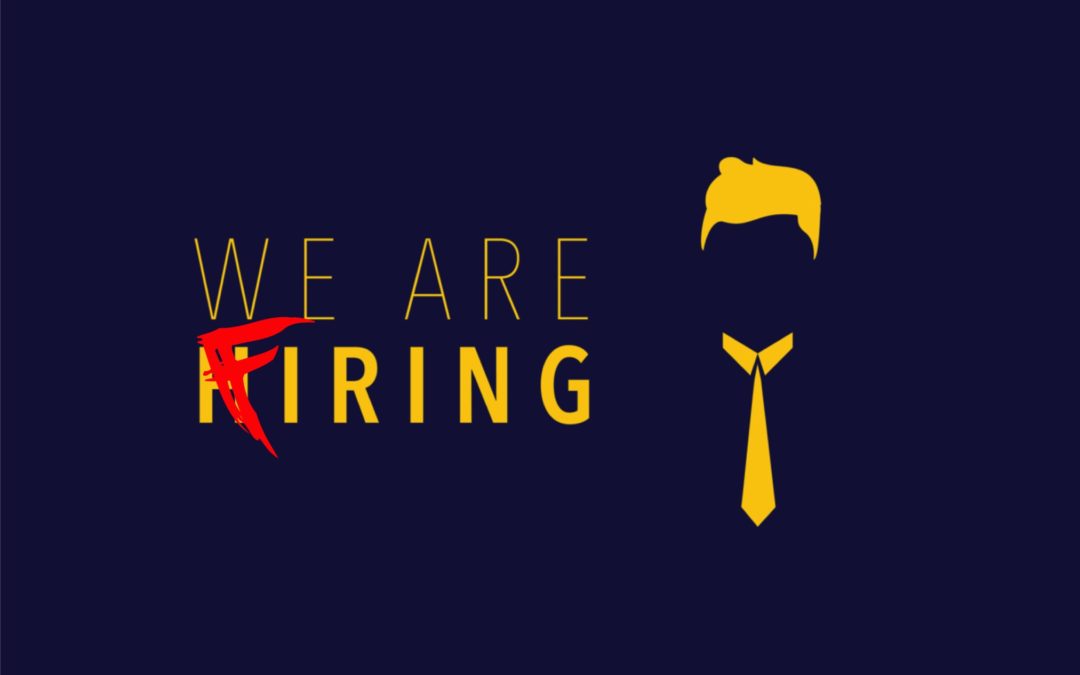Proponents of minimum wage laws and increasing minimum wage rates point to economic benefits of “stimulating” the economy by putting more dollars into the pockets of entry-level workers employed by private businesses.
The more that workers are paid in wages, so goes the argument, the more money they will spend buying things, which is good for the economy.
Very well.
I accept the premise—or at least, I offer no challenge here. Rather than debating the wisdom of increases in minimum wages, I’d like to continue this line of thinking and keep pulling on this thread. Where might next the argument go?
LET’S REGULATE THE NUMBER OF EMPLOYEES
If the economy is stimulated by increasing, via legislation and regulations, the wages paid by private businesses to employees, then surely the economy must also be stimulated by increasing, via legislation and regulations, the number of workers employed by those private businesses, yes?
The more people who are employed, after all, the more people who can go spend money and buy things, right? And spending money and buying things are good for the economy, right?
Then let us bring unemployment to precisely zero with one simple piece of legislation commanding how many employees businesses must hire and keep employed.
More, let’s use government power and make it a crime for any business to fire employees, period.
This isn’t as much of a stretch as it might seem at first glance. At least since 1938, when Congress issued the first minimum wage as part of the Fair Labor Standards Act, Americans seem to have accepted that the federal government has the rightful power to determine the price that business owners pay for the labor of others.
So why shouldn’t government also determine how many people businesses must hire and keep employed?
REGULATIONS THAT PROHIBIT BUSINESSES FROM CLOSING
In terms of economics, wages paid to employees as well as the number of employees are both simply operating costs to any business.
If it is good economics for government to increase the operating costs of businesses by forcing business owners to pay more for the labor of employees, then it must also be good economics to force businesses to hire more employees. Yes?
Members of Congress should immediately pass a Minimum Employee Law empowering the National Labor Relations Board to determine precisely how many employees every private business in the United States must hire.
Other supplemental legislation will be needed, of course. For example, no business should be allowed to escape the Minimum Employee Law simply by closing its doors. That would defeat the whole purpose of these laws and regulations.
All businesses, therefore, should be forced to remain open after Congress passes a federal No Business Closing law. You own a business and want to shut it down? Tough luck, Pumpkin, those in government won’t let you.
INFINITE ECONOMIC COMPLEXITY
So we’ll have government deciding how many employees businesses hire, how much those employees get paid, and we won’t let business get off the hook by closing. But what if the revenue streams of some businesses are too small for those business to pay their bills and stay open?
Answer: Regulators can put price caps on electricity, water, rent, as well as all costs associated with marketing, inventory, and research and development! If government bureaucrats can regulate the price of employee labor that a business must pay, surely those bureaucrats can regulate all the other expenses of a business, yes?
But what if people just don’t buy what some businesses offer for sale? How will a dying business with no customers hire and pay the number of employees required by federal law and regulation?
Let’s put on our thinking caps and brainstorm together, shall we?
If demand decreases for certain products and services offered by certain businesses, lawmakers and regulators can require that citizens buy more of those products! Those in government can make it a crime not to buy certain things! Heck, we already did that with Obamacare—we made it a crime not to purchase health insurance—so let’s make it a crime not to buy many other products and services from failing businesses.
And the products and services that lawmakers and regulators require others to buy will be sold at prices to be determined by…wait for it…wait for it…lawmakers and regulators, of course!
Ok, but what if people buy too little from certain businesses because they don’t have enough money to spend on such things? Here’s an idea: Government can increase by legislation and regulation the minimum amount people get paid in wages so that they will go buy and consume more!
Oh, wait, we did that. That problem has already been solved by minimum wage laws. Nevermind, let’s move on.
There will likely be other economic problems that will arise, too, but smart elected people in Congress and the even smarter unelected experts in regulatory agencies surely can solve those problems with just a few more laws and regulations, yes? Seriously, an economy cannot be that complicated, can it?
FOR GLORY AND HONOR
Are there any smart staff lawyers out there who can start drafting these idea into legislative legalese?
Here’s your chance to make a big name for yourself! Academics, politicians, journalists, huge numbers of Democrats and even some Republicans will gush over how brilliant you are, what a genius you are, how generous you are to loan your brainpower to the noble effort of regulating every aspect of business, employment, and all related matters!
You’ll be featured regularly on MSNBC, CNN, and CBS News, as well as the front pages of the New York Times, the Washington Post, and Time magazine. It’s the opportunity of a lifetime. Act now before someone else does.

